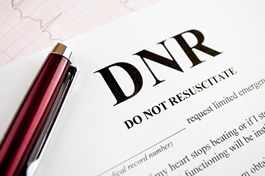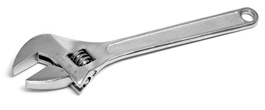 Along with my prior blog about choosing the right healthcare proxy, my dear friend also consented to share the following, intimate account of her father’s passing, as a service to readers of this blog.
Along with my prior blog about choosing the right healthcare proxy, my dear friend also consented to share the following, intimate account of her father’s passing, as a service to readers of this blog.
I am conveying her story because it is the perfect example of the difference having ample money to pay for long-term care makes.
Money creates options
With money, comes access to higher quality long-term care. If you don’t have many millions of dollars saved, you must rely on long-term care insurance if you wish to access high quality long-term care.
As you read this story, imagine how different D’s father’s end of life would have been if he had not had ample money to pay for the independent living community plus the 12-hour a day home health care her father needed. Most families do not have the wealth to do this.
D’s father required rather extensive care for about seven years at a total cost of nearly one million dollars. This would obviously be a financial catastrophe for the typical American family, in addition to causing physical and emotional sacrifices for most families. Fortunately, all three siblings agreed to spend as much wealth as necessary on their father’s care. This is not always the case. As you read D’s story, you will see that because her father had superb care from others, D did not have to provide daily hands-on care for her father. However, D was actively involved in checking on her father’s care – which contributed significantly to its high quality. She also provided essential emotional support to her father on a daily basis.
This combination of no financial stress plus D’s daily presence by phone or in person over a 7-year period undoubtedly extended his life and significantly added to its quality.
LTCi ownership is about making sure you have access, dignity, options, and choices if you need long-term care, at minimal financial, physical, and psychological sacrifice to those you love most.
D’s story:
Dad moved into independent living with an aide. He had end-stage macular degeneration & hearing impairment. Having an aide enabled him to have a better quality of life, interacting with others. He made new friends, lost others, but powered on. Managing Dad’s care was my full-time job during his final years.
I took Dad for his check-ups, especially his pulmonologist, a wonderful caring man. Dad had been on oxygen constantly, for the last 3 years as his lungs were failing. I was unhappy about Dad’s color, so I took him for a check-up. I received the news that the end was near and it was going to be bad. The doctor was right. Witnessing my father’s death was gut wrenching. I was determined to make Dad as comfortable as possible.
Dad’s last week was spent gasping for air, completely overheated, sweating profusely. When I called, he had kept hanging up the phone on me. I did not realize how close the end was because of this.
Dad’s 97th birthday came, he woke and asked if he was 97 yet. Then he said “Good!” and went back to sleep. Close family and friends spent his birthday sitting with him, talking to him, holding his hand.
Periodically, I would ask him if wanted to be held, he would nod yes. So I would get in bed with him and hold him. At one point, he started patting my tush and I reminded him that I was his daughter. He replied, “ I diapered that tushie, it’s mine,” laughed, and fell back to sleep.
Hospice had been called, but they were a bit late in arriving. By then, his whole body had quieted down, no more gasping for air like a fish out of water and profuse sweating. The RN said he was ready to go, based on his posture, appearance, and his not waking anymore. The purpose of Hospice was to give liquid Morphium to ease my father’s suffering.
Two days after Dad’s 97th birthday, on the last night of Passover, he died. He had fun, joy, laughter delighted in his family and grandchildren. He was always the best dressed man in the room. I can also say he was not always a joy. He could be oh so cranky, with the best of them, but witty. We had a standing date every Wednesday and he sang me good-night every night, in that croaky voice that couldn’t carry a tune with a bucket.





 Thanks for visiting my site! I like hearing from you!
Thanks for visiting my site! I like hearing from you!